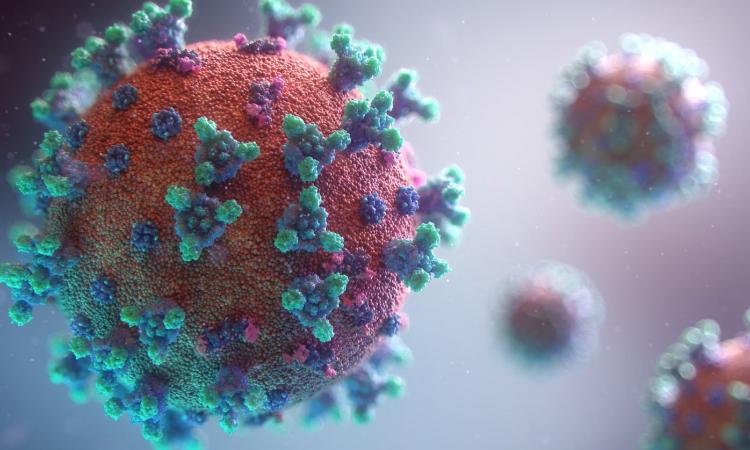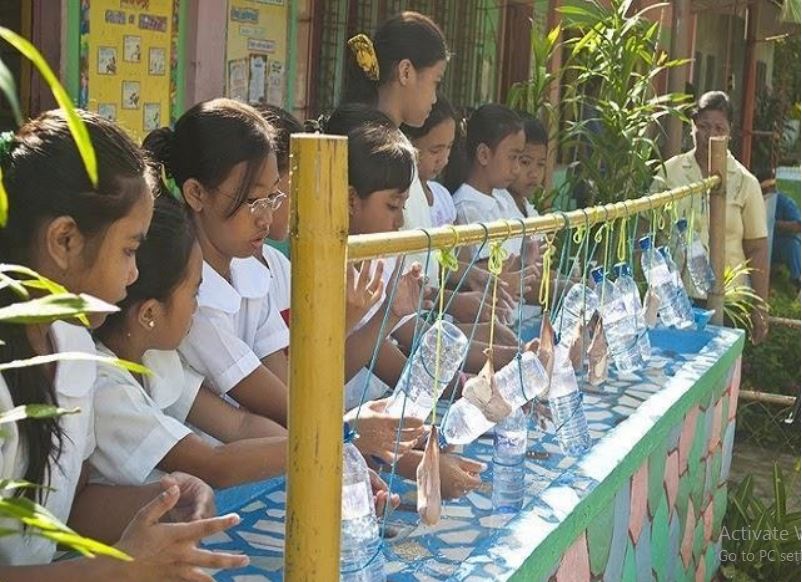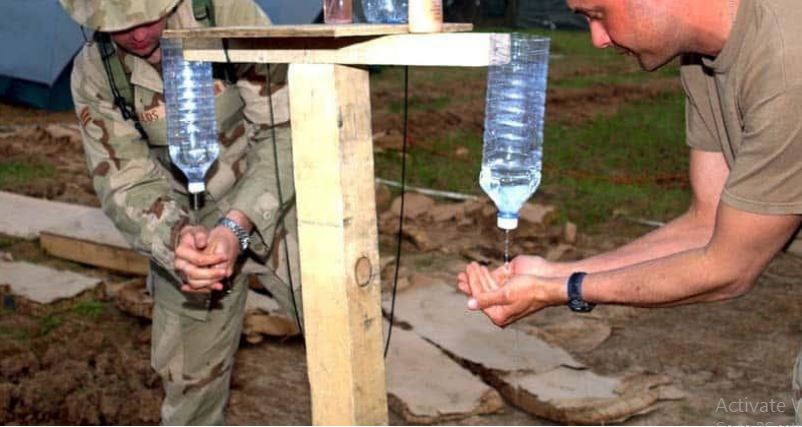
COVID-19 (novel coronavirus disease), an acute respiratory disease emerged in late 2019 and has been spreading rapidly across the globe. The World Health Organization has declared COVID-19 a pandemic. It is marked by respiratory problems that are usually mild (coughing, fever) but can be severe (pneumonia, trouble breathing).
Here, we provide some important information based on an advisory prepared for workers who cannot avoid going out during the Covid-19 pandemic. The advisory was prepared by the Public Health Movement COVID Advisory group of the Jan Swasthya Abhiyan (JSA) in consultation with several qualified health professionals including experienced senior doctors, social scientists and activists.
What is COVID-19?
Coronavirus disease 2019 (COVID, Corona) is a new disease which originated in Wuhan, China. Because it is new, we have very little natural immunity to it. Although it is similar to the usual cold and flu, Coronavirus disease 2019 spreads much faster and there is a worldwide pandemic already.
About 80-90 in 100 people who get Coronavirus disease 2019 will get better as in a common cold. About 10-20% may develop some complications like pneumonia which may require them to go to a hospital. Of these, about 5-8% may require ICU care and 3-4% may die.
Those who die will mostly be the old who are weak, or those with other diseases like heart problems, diabetes, blood pressure and kidney problems. These people have to be taken special care of.
What is the likelihood of you getting it?
The disease is quite contagious and workers who cannot avoid going out during the pandemic can get it. It spreads by touch of an infected person, or contact with an object or surface that has been touched, coughed or sneezed on by an infected person. This coronavirus can survive up to several hours on such surfaces. The disease can be airborne as the virus spreads through droplets from your sneezing and coughing in the air up to two meters away. You may have a considerable risk of getting it at your work, during your travel, etc.
How to prevent it?
Keeping hands clean: Hands touch many surfaces and can pick up viruses. Once contaminated, hands can transfer the virus to your eyes, nose or mouth. From there, the virus can enter your body and make you sick. It is important to keep the hands as free of the coronavirus as possible. Clean them at least once in two hours.
1. If you have enough water, wash your hands thoroughly with soap, rubbing the soap around your fingers, between them, around and under the nails, on your palms and on the back of your hands for about 20 seconds and then wash them clean.
2. If you have access to a hand sanitizer, put about one teaspoon of hand sanitizer on your hands and rub the hands together thoroughly between fingers, around and under the nails, on the palms and back of the hands about 20 seconds -- don’t wash them.
3. If you don’t have much water, try washing using less water as in the following pictures:


4. If you don’t have even this much water, use one plastic bottle and fill it with strong soap water in the morning. Take a capful of soap water in your palm and rub it all over your hands, between your fingers, around and under the nails, on the palms and the back of the hands. Do this for 20 seconds. Then wipe it on a towel. Repeat it 6 times a day every two hours. Wash the towel and dry it at night.
Avoid touching the face, especially nose, lips or eyelids. If it is unavoidable, try to do so with clean, washed hands. Be careful while touching railings, handles, door knobs, chair arms, smart phones, dial pads, key pads of computers, lift elevator buttons, doorbells. Do not use your dominant hand (usually right hand so use left hand) to operate handles, holding objects, pressing key pads etc. Clean your hands soon after contact with surfaces used by others.
Avoid long queues and crowded places like markets, malls, theatres, bus terminals, airports. If unavoidable keep a safe distance from others. Protect yourself in crowded places.
As COVID 19 spreads very fast, one needs to protect oneself in their workspace and crowded places and when interacting with others.
To prevent the virus from entering your body when you are in proximity to an infected person, use of masks is recommended. If you do not have access to masks, you can use a clean handkerchief/chunni or any piece of clean cloth for this. You need to keep a minimum of 3 layers of the handkerchief/chunni to cover your nose and mouth.
While using masks or handkerchief, some precaution needs to be taken
- Mark an ‘X’ to remember which is the outside of the handkerchief/mask and always put this outside.
- Before putting on the handkerchief, clean your hands with soap and water and then wear the mask
- Both your nose and mouth should be covered and there should be no gap between your face and handkerchief/mask
- Try not to keep touching or adjusting the mask/kerchief and do not touch the side facing out/front part of the mask at all.
- If you have touched the front part of your handkerchief, clean your hands
Disposal/cleaning
- If using a handkerchief, you need to remove it 6 hours or when you feel its damp.
- To clean the handkerchief, wash it in warm water and soap then dry it preferably in the sun.
- If you are using the mask, it needs to be disposed of in 5-6 hours or when you feel it is damp
Precautions after coming back home from outside
- Keep your keys, tools that you carry out in a box or safe place in the house.
- Change your clothes and wash them. If you cannot wash, then keep them inside a polythene bag separately. Next day, you may wear those before you step out of the house.
- Be careful while touching railings, handles, door knobs, chair arms, smart phones, dial pads, key pads of computers, lift elevator buttons, doorbells. Do not use your dominant hand ( usually right hand so use left hand) to operate handles, holding objects, pressing key pads etc. Clean your hands soon after contact with surfaces used by others.
Nutritional support: Ensure you have good food (rice, dal, coloured vegetables, leafy greens, meat, milk, curd, fruits like papaya, guava, oranges and sweet lime as much as possible). Take adequate rest, engage in relaxation exercises and have a positive healthy frame of mind. This coronavirus pandemic will pass -- the disease is already receding in China where it had originated. Do not panic, or feel depressed -- negative feelings will reduce your body’s immunity and stamina to fight the virus. That is never good for your health.
How do you know when you get it?
The symptoms of COVID-19 are fever, tiredness, sore throat and dry cough. This disease first appears to be very much like the common flu. Some may experience loss of smell and taste as well as abdominal cramps with or without loose stools. In severe cases you get difficult breathing and fast breathing. It is difficult to differentiate COVID 19 from the common flu, but if these above symptoms occur please assume and act as if it is COVID 19.
How to take care of it if it happens?
If you have a fever sore throat with cough or breathing difficulty, you may be having Covid 19. Most cases of Covid 19 will affect only the upper respiratory tract, (i.e., nose, mouth and throat) and improve on its own. For this the treatment is the same as any normal flu.
If you develop these symptoms do the following:
- Take bed rest,
- Drink plenty of fluids.
- Take paracetamol (Crocin or Dolo 650 mg every 8 hours) if needed,
- Take antihistamines (Cetirizine 10 mg once a day, or Avil 25 mg 2-3 times a day)
- Take steam inhalation (as hot as you can tolerate it)
- Gargle with warm salt water and
- Do not take ibuprofen (Brufen) for fever or body ache either alone or in combination (Combiflam, Ibugesic or any other brand).
- Isolate yourselves from family members. Keep at least 2 meters away from others during this illness and do not touch them.
- If one of your family members has these symptoms:
- Convince them to isolate themselves by explaining the risk to others, elders, in the family. Do not force them to isolate.
- Keep physical distance, but talk to them kindly and with affection.
- Help them cope with the infection with good mental health.
General precautions in a patient’s home:
- All utensils used should be washed immediately and carefully with a kitchen detergent. Wash hands too at the same time carefully.
- Wash clothes carefully, separately with adequate soap and rinse thoroughly. This too should not be done by the patient.
- Mop the room with a disinfectant like phenyl, Lysol or even some washing soap twice a day.
- Do not let elders or young children near the patient at all costs.
- The patient can put their utensil in soap water and someone else can wash it after 15-20 min. Same can be done with used clothes.
- Continue the above until the person feels better. Most cases (80%) will recover completely. About 20% of those infected may develop shock (giddiness, loss of pulse or fainting), signs of pneumonia like difficulty breathing, and the fever/sore throat may not come down. This is more likely in those who are above 70 years old or who have pre-existing conditions like heart disease, diabetes or hypertension, especially if it is not under control. If these signs of advanced illness occur, call an ambulance and get medical care from a qualified doctor immediately.
For your information, and readiness, the treatment for this medical emergency includes:
- Hospitalization
- Antibiotics (Azithromycin), hydroxychloroquine, antivirals and intravenous fluids.
- Oxygen (in difficult cases). Each state will have a helpline/government authority to report the illness to. Please find out this and keep it at hand. Use it to report your illness.
JSA forms the Indian regional circle of the global People’s Health Movement. At present, it is the major national platform that co-ordinates activities and actions on health and health care across the country.
/articles/advisory-how-prevent-covid-19